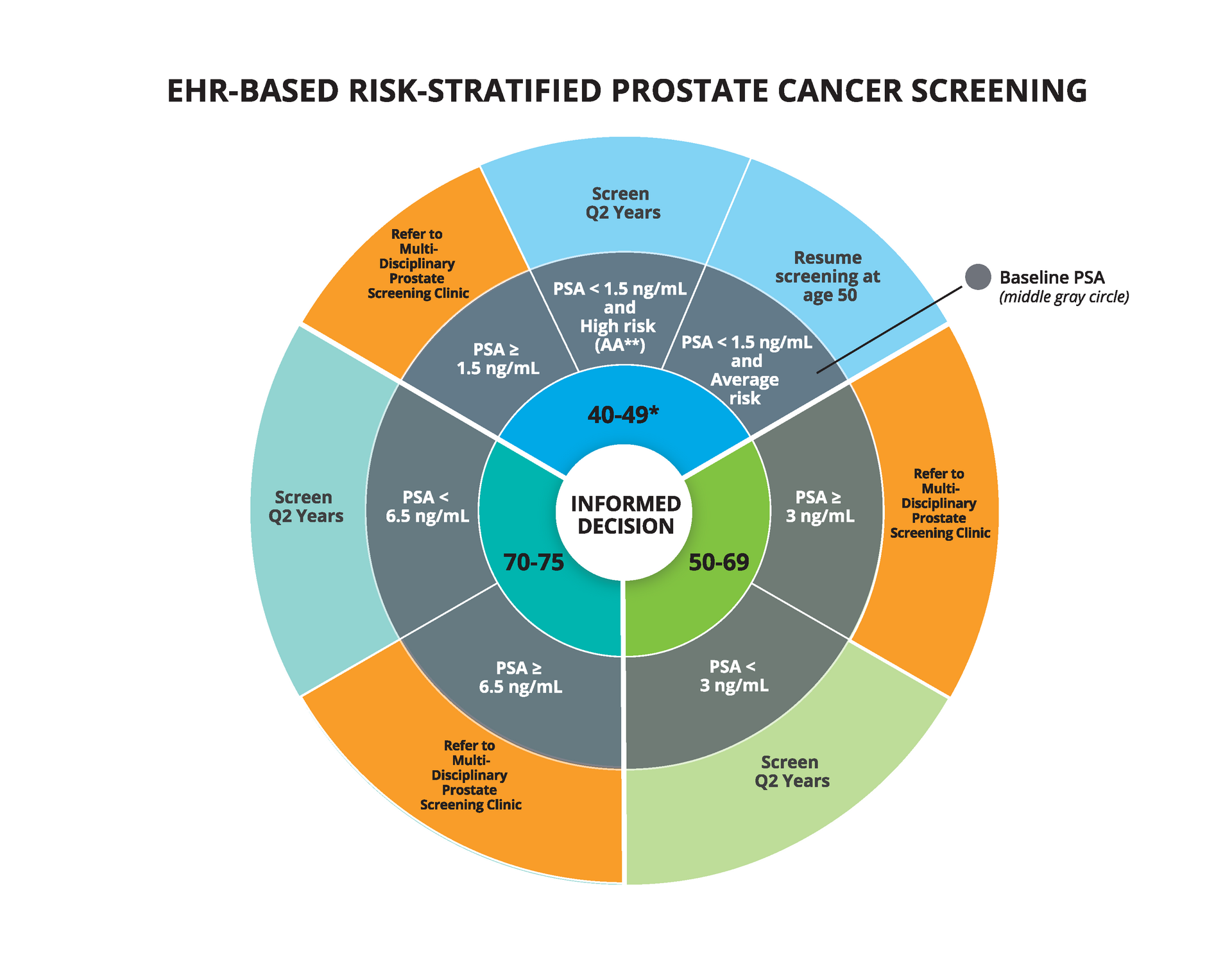The Problem
In 2012, the US Preventive Services Task Force (USPSTF) issued the lowest recommendation grade (grade D) to PSA screening stating that the risks outweigh the benefits due to over-diagnosis and overtreatment. However, the USPSTF recommendation did not account for populations at high risk for prostate cancer such as African-American men and those with a positive family history. In aggregate, these disparate recommendations led to increased confusion and variation in primary care provider practice around prostate cancer screening.


